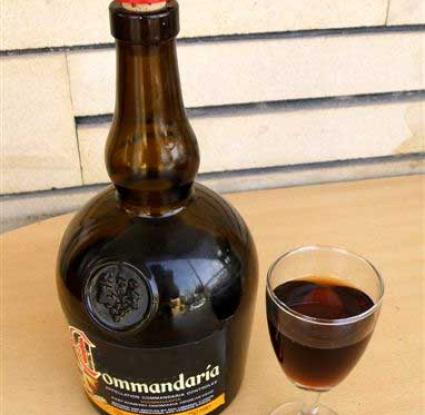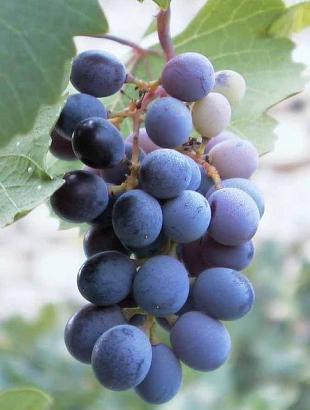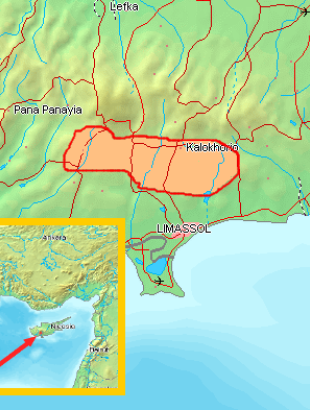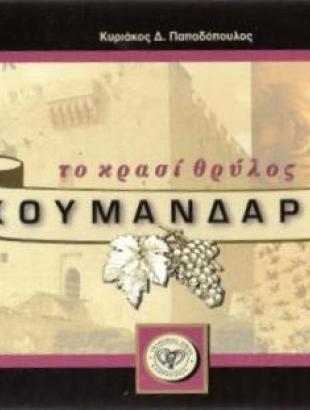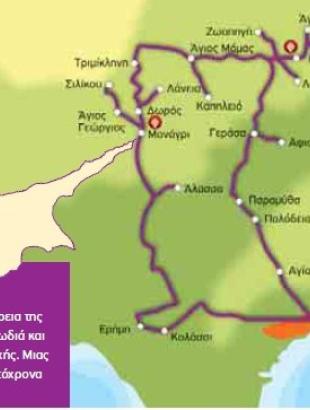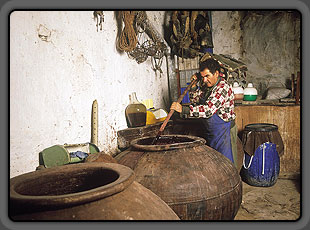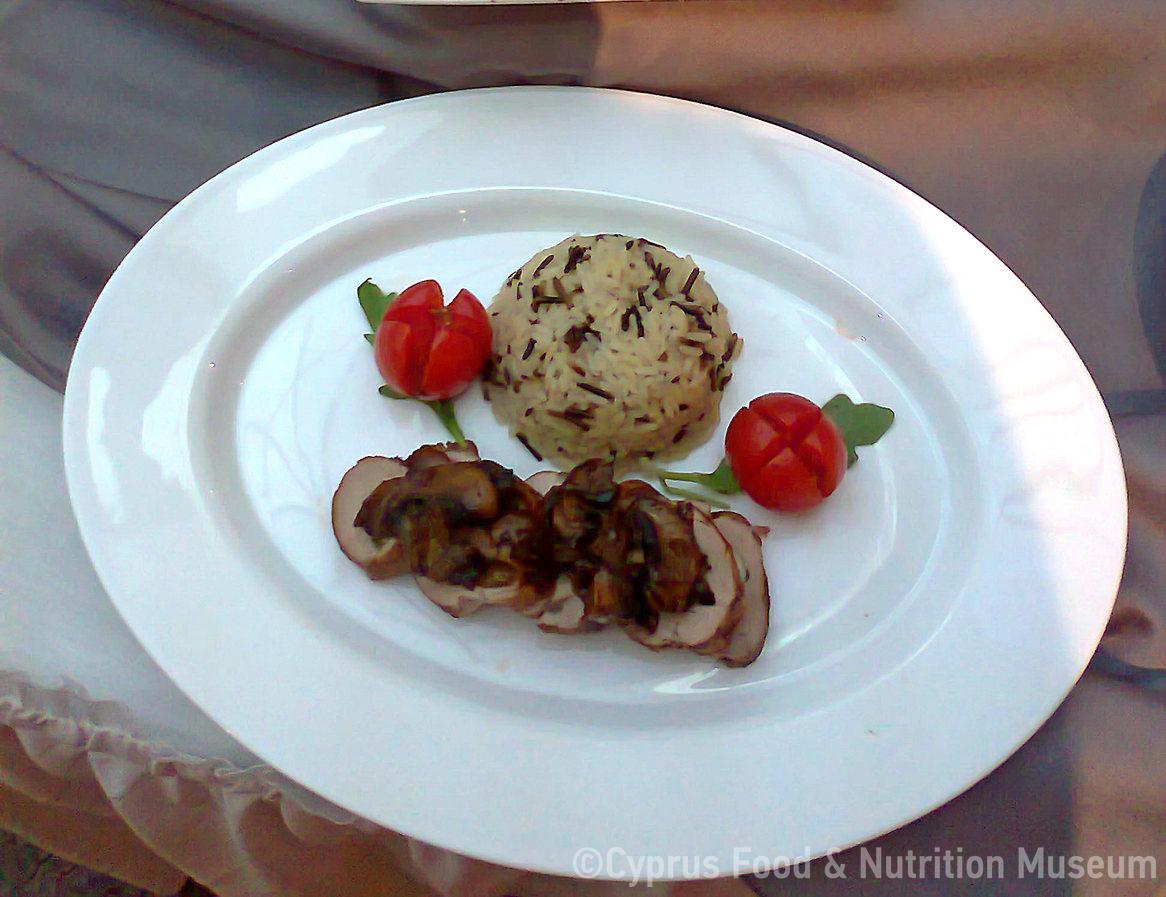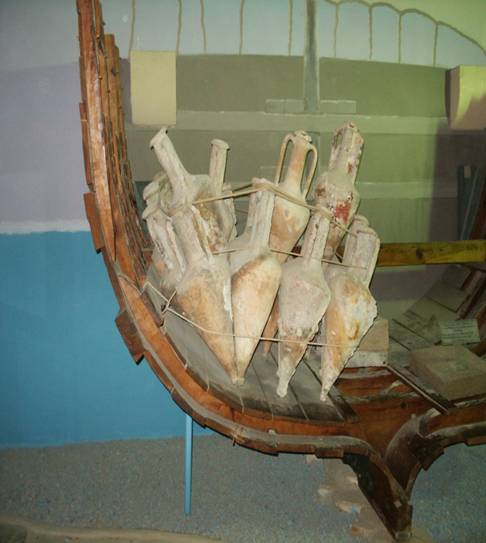Commandaria is an amber-coloured sweet dessert wine made in the Commandaria region of Cyprus on the foothills of the Troödos Mountains. Commandaria is exclusively produced from the two indigenous grape varieties of Cyprus, "Xynisteri" and "Mavro". Commandaria holds a protected designation of origin (PDO) within the European Union as well as the United States and Canada.
Name - Origin
Κουμανδαρία: είδος μαύρου, γλυκού κρασιού.
Commandaria is an amber-coloured sweet dessert wine made in the Commandaria region of Cyprus on the foothills of the Troödos Mountains. Commandaria is exclusively produced from the two indigenous grape varieties of Cyprus, "Xynisteri" and "Mavro". Commandaria holds a protected designation of origin (PDO) within the European Union as well as the United States and Canada (Ministry of Agriculture, 2024).
ETYM. It was named commandaria, because during the Venetian occupation, only the "commanders" [governors] of the island, would drink this wine. The word is derived from the noun koumanda, hence, the verb koumandaro, which often adopts the usual Cypriot dialect suffix -isko and becomes koumandarisko (Kypri 1983 [2003²], entry κουμανταρκά,η, 72). / From the Latin word commendaria. A name given to the divided substations of the administration of the Order of Ioannites in Cyprus, where commandaria, la commenderie, was produced (Petrou-Poeitou 2013, entry Κουμανταρία, 68).
It is produced from sun-dried grapes. The quality of commandaria improves as it ages. When stored for many years, this wine becomes semi-mature and in order to be used it must be dissolved in water (Kypri 1983 [2003²], article on kumantarka, 72). The harvesting process would take place in August, when the fruit was shiny and transparent. After harvesting, the grapes were laid out in the sun for 8 to 15 days to dehydrate and then the winemakers would crush them in linos, a press, to produce the must. The must would be decanted into a jar and left to ferment (Ionas 2001, 91, 97-99).
Functional and symbolic role
Commandaria was consumed by Cypriots together with a variety of delicacies. It was also offered at festivals and on special occasions, such as in weddings. Many housewives, in order to obtain a better taste and aroma, used to mix vinegar with commandaria when preparing pickled blackcaps (Xioutas 1978, 223).
Commandaria used to be consumed in almost all the special occasions.
Additional information and bibliography
The unique method of Commandaria production was documented in 800 BC, which makes it the oldest recorded and named wine in the world (Ministry of Agriculture, 2024).
It is believed that Cyprus was conquered by the Turks (1571), because they wanted to control the production of commandaria (Kypri 1983 [2003²], entry κουμανταρκά,η, 72).
During a church wedding ceremony, the relatives of the couple would take commandaria with them. The priest would give the couple to drink three sips of commandaria. The leftover commandaria was available to anyone to drink; commandaria was even believed to cure dizziness (Mavrokordatos 2003, 333).
More information on commandaria can be retrieved on: www.moa.gov.cy/moa/da/da.nsf/All/ 577340B01997EB9EC2258BB700214609/$file/ Commandaria%20booklet%20LowRes.pdf?OpenElement
Commandaria, the legendary wine product of Cyprus (2024) Ministry of Agriculture, Rural Development and Environment, Department of Agriculture, Press and Information Office. Available online at: www.moa.gov.cy/moa/da/da.nsf/All/ 577340B01997EB9EC2258BB700214609/$file/ Commandaria%20booklet%20LowRes.pdf?OpenElement.
Ionas, I. (2001). Παραδοσιακά επαγγέλματα της Κύπρου (Publications of the Centre for Scientific Research XXXVII), Centre for Scientific Research, Nicosia.
Kypri Th. D. (ed.) (1983 [2003²]), Υλικά διά την σύνταξιν ιστορικού λεξικού της κυπριακής διαλέκτου, Μέρος Β΄, Γλωσσάριον Ξενοφώντος Π. Φαρμακίδου, Publications of the Centre for Scientific Research, IX, Nicosia.
Mavrokordatos G. I. (2003), Δίκωμο: Το χθες και το σήμερα, Nicosia.
Xioutas P. (1978), Κυπριακή λαογραφία των ζώων. Publications of the Centre for Scientific Research, XXXVIII, Nicosia.
Petrou-Poeitou E. (2013), Από πού κρατάει η σκούφια τους. Λέξεις και ιστορίες από τον κόσμο της γεύσης, Epiphaniou Publications, Nicosia.
Stalo Lazarou, Demetra Demetriou, Savvas Polyviou, Argyro Xenophontos, Tonia Ioakim

